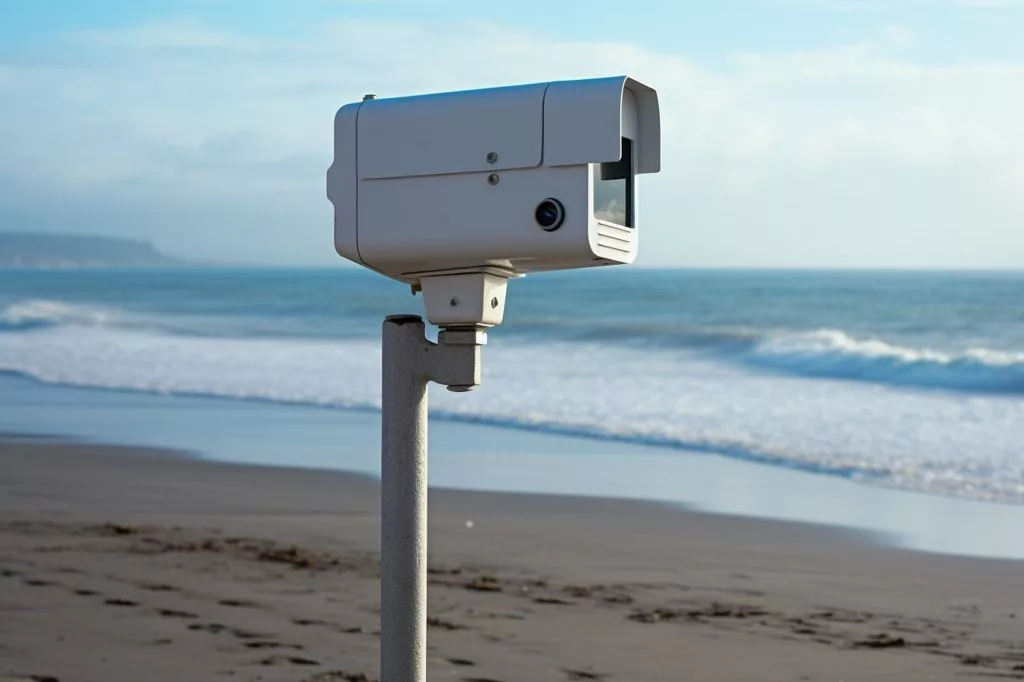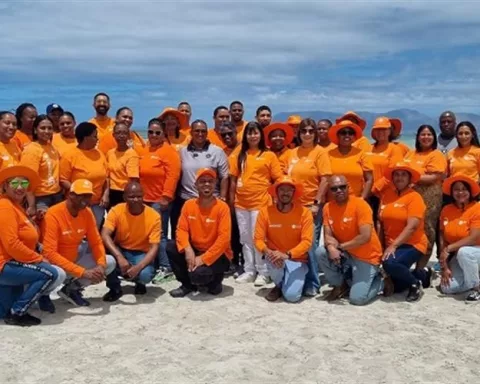The NSRI’s Beach Safety Camera Network Project is a groundbreaking initiative aimed at improving safety on South Africa’s beaches. By placing cameras in high-risk rip current areas, vigilant operators can alert nearby lifeguards of potential hazards, potentially saving lives. The NSRI is actively seeking volunteers to oversee the camera system, providing comprehensive training to ensure they are well-prepared to operate the cameras and receive support as needed. As the network of cameras continues to expand, beachgoers can enjoy South Africa’s stunning coastal vistas with greater peace of mind.
What is NSRI’s Beach Safety Camera Network Project?
NSRI’s Beach Safety Camera Network Project is an innovative program aimed at improving safety on South Africa’s beaches. The project strategically places cameras in high-risk rip current areas along the Western Cape, allowing vigilant camera operators to alert nearby lifeguards of potential hazards. The NSRI is actively seeking volunteers to oversee the camera system, providing comprehensive training to ensure they are well-prepared to operate the cameras and receive support as needed. As the network of cameras continues to grow, so too will the peace of mind of those who enjoy South Africa’s beautiful coastal paradises.
South Africa’s breathtaking and scenic beaches have consistently attracted locals and tourists, especially during the hot summer months and festive holiday seasons. However, the extensive coastline and hidden dangers beneath the waves, such as deadly rip currents, require advanced safety measures to support the diligent work of lifeguards.
A prime example of such groundbreaking efforts is the National Sea Rescue Institute’s (NSRI) renowned Beach Safety Camera Network Project, which recently earned the esteemed second place in the Innovation and Technology category at the International Maritime Rescue Federation (IMRF) Awards. This distinguished honor reflects the NSRI’s unwavering commitment to volunteerism, innovation, and safety on South Africa’s waters.
NSRI’s Trailblazing Initiatives and Achievements
Led by Andrew Ingram, the drowning prevention manager at the NSRI, the Beach Safety Camera Network Project is just one of the many innovative programs the organization has introduced in recent years. Its impressive collection of accolades includes seven IMRF awards, recognizing water safety lessons for children (2016), the Pink Rescue Buoy project (2018), the floating rock and surf rescue stretcher (2019), a lifetime achievement award for Patrick van Eyssen’s 50 years of active rescue volunteerism, and awards for the JetRIB in 2021 and the Survival Swimming Centre container pool project in 2022.
An especially moving instance of the Beach Safety Camera Network Project’s positive impact occurred earlier this year when an attentive camera operator at Strand Beach noticed a 10-year-old boy named Matthew struggling in the water, as he was caught in a rip current. The operator acted swiftly, alerting nearby lifeguards to the emergency, resulting in Matthew’s successful rescue. This life-saving intervention will undoubtedly remain embedded in the hearts and minds of Matthew’s thankful family for years to come.
Expanding the Beach Safety Camera Network
At present, NSRI Beach Safety Cameras are strategically placed at high-risk rip current areas along the Western Cape, including Strand Beach, Blouberg Beach, Herolds Bay in the Garden Route area, and Buffels Bay. However, the organization has ambitious plans to broaden this essential project to additional locations, aiming to install more cameras in the Western Cape and KwaZulu-Natal in the coming year.
To enhance the effectiveness of this inventive initiative, the NSRI is actively seeking volunteers to oversee the Beach Safety Cameras from their homes. These committed individuals play a vital role in monitoring the cameras and promptly informing the NSRI’s Emergency Operations Centre (EOC) of potential hazards, thus enabling more lives to be saved. Comprehensive training is provided to the volunteers, ensuring they are well-prepared to operate the camera system and receive support from the EOC and fellow volunteers as needed.
Community-Driven Safety Efforts
A remarkable example of the strength of community-led safety measures is found in Herolds Bay, where an eager group of volunteers collaborates closely with local first responders. This successful pilot project is currently being expanded to Strand, Blouberg, and Buffelsbaai.
The NSRI’s Beach Safety Camera Network Project is a glowing testament to the organization’s tireless pursuit of innovation and its dedication to promoting safer environments on South Africa’s beaches. The recent recognition from the IMRF further highlights the project’s vital role in protecting the lives of beachgoers across the country. As the network of cameras continues to grow, so too will the peace of mind of those who enjoy the splendor and charm of South Africa’s coastal paradises.
What is the purpose of NSRI’s Beach Safety Camera Network Project?
The purpose of NSRI’s Beach Safety Camera Network Project is to improve safety on South Africa’s beaches by placing cameras in high-risk rip current areas. Vigilant camera operators can then alert nearby lifeguards of potential hazards, potentially saving lives.
How does NSRI’s Beach Safety Camera Network Project work?
NSRI’s Beach Safety Camera Network Project places cameras in high-risk rip current areas along the Western Cape. Vigilant camera operators monitor the cameras and promptly inform nearby lifeguards of potential hazards, enabling more lives to be saved.
What kind of training is provided to volunteers for NSRI’s Beach Safety Camera Network Project?
Comprehensive training is provided to volunteers for NSRI’s Beach Safety Camera Network Project to ensure they are well-prepared to operate the camera system and receive support from the Emergency Operations Center and fellow volunteers as needed.
What are the benefits of NSRI’s Beach Safety Camera Network Project?
The benefits of NSRI’s Beach Safety Camera Network Project include improving safety on South Africa’s beaches, potentially saving lives, and providing greater peace of mind for beachgoers.
Where are the NSRI Beach Safety Cameras currently located?
The NSRI Beach Safety Cameras are currently placed in high-risk rip current areas along the Western Cape, including Strand Beach, Blouberg Beach, Herolds Bay in the Garden Route area, and Buffels Bay.
What are the NSRI’s plans for expanding the Beach Safety Camera Network?
The NSRI plans to broaden the Beach Safety Camera Network to additional locations, aiming to install more cameras in the Western Cape and KwaZulu-Natal in the coming year.
What is the role of volunteers in NSRI’s Beach Safety Camera Network Project?
Volunteers play a vital role in NSRI’s Beach Safety Camera Network Project by overseeing the cameras from their homes, monitoring them, and promptly informing the Emergency Operations Center of potential hazards.
What is the impact of NSRI’s Beach Safety Camera Network Project?
NSRI’s Beach Safety Camera Network Project has had a positive impact by potentially saving lives and providing greater peace of mind for beachgoers. An example of the project’s impact is the life-saving intervention of a camera operator at Strand Beach, who noticed a 10-year-old boy struggling in the water and alerted nearby lifeguards to the emergency.












